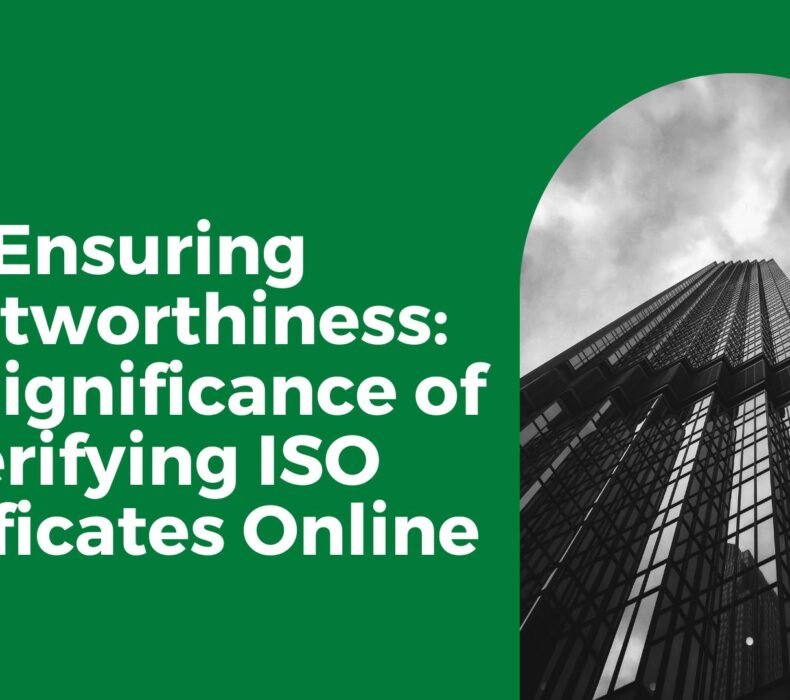In today’s global market, trust is the cornerstone of successful business transactions. Whether in manufacturing, service provision, or product distribution, certifications play a crucial role in establishing credibility and ensuring quality standards. Among these certifications, the International Organization for Standardization (ISO) certificates hold significant importance, indicating adherence to international standards across various industries.
However, the proliferation of counterfeit certificates and false claims has made it imperative for businesses and consumers alike to verify the legitimacy of ISO certificates. In this digital age, online verification has emerged as a powerful tool in authenticating these credentials, offering a reliable means to ascertain the validity of certifications claimed by businesses.
Understanding the Essence of ISO Certifications
ISO certifications are globally recognized standards that ensure products, services, and processes meet specific criteria for quality, safety, efficiency, and environmental performance. These certifications cover a wide array of industries, including manufacturing, healthcare, information technology, and more. Obtaining an ISO certification involves rigorous evaluation and adherence to predefined standards set by the ISO.
Challenges with False Certifications
Despite the rigorous procedures for obtaining ISO certifications, the prevalence of counterfeit certificates presents a significant challenge. Unscrupulous entities may falsely claim certification status, misleading consumers and stakeholders. This misrepresentation not only damages the credibility of genuine businesses but also poses risks concerning product quality, safety, and compliance.
Importance of Online Verification
Online verification offers a practical solution to combat the proliferation of fraudulent ISO certifications. Various platforms and databases provide tools to verify the legitimacy of certificates quickly and efficiently. These verification systems typically allow users to input certification details, such as the certificate number, issue date, and the certifying body, to authenticate the validity of the claimed certification.
Process of Verifying ISO Certificates Online
Accessing Accredited Databases:
Utilizing authorized databases or platforms specifically designed for verifying ISO certificates is the initial step. These databases often have direct connections to certifying bodies, ensuring the information is up-to-date and accurate.
Inputting Certificate Details:
Users input the certificate details provided by the business claiming certification. This information includes the certificate number, date of issue, the certifying body’s name, and other relevant information.
Validation Process:
The system cross-references the provided details with the database’s records. It checks for authenticity by verifying the certificate number, its issuance, and the legitimacy of the certifying body.
Verification Outcome:
Upon completion of the validation process, the system provides a verification outcome. It confirms whether the certificate is valid, expired, or non-existent.
Benefits of Online Verification
Enhanced Credibility:
Genuine businesses benefit from increased credibility by showcasing verifiable ISO certifications, fostering trust among consumers and partners.
Risk Mitigation:
Avoiding transactions with entities presenting false certifications mitigates risks associated with substandard products or services.
Transparency and Assurance:
Provides transparency in business dealings, assuring stakeholders of a commitment to quality and compliance.
Note: You Can Apply for ISO 22000-2018 Certification
Conclusion
In an era where trust and authenticity are paramount, verifying the legitimacy of ISO certificates online is indispensable. The reliability and ease of access offered by online verification mechanisms significantly contribute to fostering transparency and trust within industries. Businesses and consumers leveraging these tools are empowered to make informed decisions, thereby upholding the integrity of the ISO certification process and ensuring adherence to global standards.



